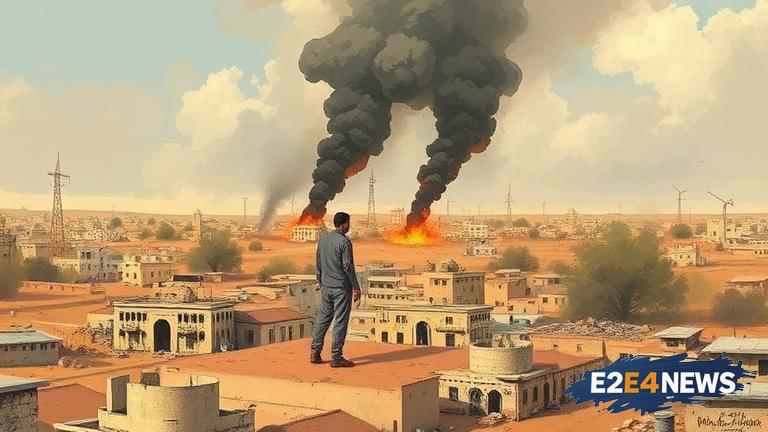The Gaza Strip, a coastal region bordering Israel and Egypt, is grappling with a devastating humanitarian crisis. The enclave’s 2 million inhabitants are struggling to access basic necessities like food, water, and healthcare. The situation has been deteriorating for years, but recent developments have pushed the region to the brink of disaster. Israel’s border restrictions, imposed in 2007, have severely limited the flow of goods and people into and out of Gaza. The blockade has crippled the local economy, leaving many residents without a steady income or access to essential resources. As a result, food insecurity has become a major concern, with over 60% of the population relying on international aid to survive. The World Food Programme (WFP) has warned that Gaza is on the verge of a food crisis, with many families struggling to afford even the most basic staples. The situation is particularly dire for vulnerable populations, including children, the elderly, and those with disabilities. Malnutrition rates are soaring, with many youngsters suffering from stunted growth and developmental delays. The lack of access to nutritious food has also led to a surge in diet-related health problems, such as diabetes and heart disease. The Israeli government has argued that the blockade is necessary to prevent the smuggling of weapons and materials that could be used to build tunnels and other infrastructure by militant groups like Hamas. However, human rights organizations and aid agencies have condemned the restrictions, arguing that they amount to collective punishment and are exacerbating the humanitarian crisis. The international community has called for an immediate easing of the blockade, but so far, Israel has refused to budge. The United States, a key ally of Israel, has also been criticized for its role in perpetuating the crisis. The US has provided significant financial and military aid to Israel, while also cutting funding to UN agencies that provide vital support to Palestinian refugees. As the situation in Gaza continues to deteriorate, there are growing concerns about the potential for social unrest and even violence. The region has experienced numerous conflicts over the years, including a devastating war in 2014 that left thousands of civilians dead and many more displaced. The humanitarian crisis in Gaza is not just a local issue, but a global concern that requires immediate attention and action. The international community must come together to demand an end to the blockade and provide urgent support to those affected. This includes increasing funding for aid agencies, promoting economic development, and supporting initiatives that promote peace and reconciliation. The people of Gaza deserve to live with dignity and respect, and it is our collective responsibility to ensure that their basic human rights are protected. The crisis in Gaza is a stark reminder of the need for a comprehensive and sustainable solution to the Israeli-Palestinian conflict. A two-state solution, with Israel and Palestine living side by side in peace and security, is the only way to ensure a lasting resolution to the crisis. However, achieving this goal will require significant effort and commitment from all parties involved, including the international community. In the meantime, it is essential that we prioritize the humanitarian needs of the people of Gaza and work towards a more just and equitable solution. The world cannot afford to stand idly by as the people of Gaza suffer; we must take action to prevent a humanitarian catastrophe and promote a lasting peace. The situation in Gaza is a complex and multifaceted issue, with deep-rooted historical, political, and economic factors at play. To truly understand the crisis, it is essential to examine the broader context and the various actors involved. The Israeli-Palestinian conflict has been ongoing for decades, with both sides claiming a right to the same land. The conflict has resulted in numerous wars, displacement of people, and a profound humanitarian crisis. The international community has a critical role to play in resolving the conflict and promoting a lasting peace. This includes supporting diplomatic efforts, providing humanitarian aid, and promoting economic development. By working together, we can help to create a more just and equitable solution for all parties involved and bring an end to the suffering of the people of Gaza.
